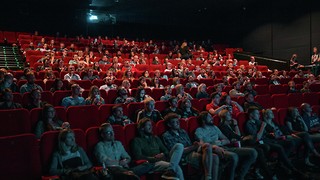Paradise Found
The Milton Brewery supply a dozen of our Colleges with the finest beer in East Anglia and have been brewing on the edge of Cambridge since 1999. The Varsity Team go on a tour of their premises to gain an education in hop-flavoured libation. Rob Peal reports
On the northern edge of Cambridge is a little village called Milton, and on the edge of Milton there is an industrial estate, and in this industrial estate lies the Milton Brewery. The brewery is run by the hop-smoking, yeast-beating Gimli look-alike Richard Naisby. Visiting it is quite an experience.
We walked in to a small concrete room covered in cobwebs and dust. At the back of the room was some brewing equipment: a mash tun, a large copper and three fermenting barrels. I asked how far the brewery stretched. “This is it,” Richard replied; “It’s a brewery, not a museum.” Laid out for us were two kegs, each consisting of seventy-two pints. Split between eighteen people, this was a remarkably generous offering. We had the choice of either Sparta or Dionysus. Anyone who has had a pint of Nero at the Rad will know that this brewery has a strong penchant for classically-themed names. We grabbed our glasses, wolfed down a couple of complimentary scotch eggs and pork pies, and turned on the taps. I had done it, it had been achieved: no one could ever accuse me of being incapable of organising a piss-up in a brewery again.
Richard has a love for beer that goes far beyond the practical concerns of inebriation. He speaks about it with obsessive knowledge and consuming passion. In the corner of the room is a bath tub. It may be used to clean equipment, but I have a suspicion that Richard uses it to bathe in his brew. Such is his love. As president of the Oxford University Real Ale Society, Richard was barred from the Woodstock Arms for outwitting a barman. The barman claimed there were no beers made without hops, so Richard reeled off the nine in the world that did.
The brewery owes its incarnation to the Karakorum Mountains of Northern Pakistan where Richard, then a travel writer, first met Tony Brooks, and the two of them decided to start a brewery. They put it together in two months, and launched their first beer in September 1999.
Once we were all feeling slightly squiffy, Richard showed us the brewing process. This timeless art of combining malt barley, hops, yeast and water to make happiness deserves to be understood. It all starts with the grist mill, which turns the malted barley into grist. The grist mill is a formidable machine, weighing a third of a tonne and strapped onto the wall like a psychopath in a straight jacket. We are handed some malted barley to eat; it tastes a bit like Horlicks, and has a long way to go before it is beer. The grist is then mixed with boiling brewing water to make a starchy, sugary mixture. This porridgey substance is then poured into the Copper with the hops and 2,452 litres are boiled in one sitting. This mixture goes by the attractive name of ‘wort.’ Changing the types of hops or malt allows the Milton Brewery to produce an enormous variation of beers. Their most recent, an Oliver Cromwell-themed strong beer, went by the terrific punning name ‘Worts and all’ and won the Strong Beer prize at this year’s Cambridge Beer Festival.
The wort is then crash cooled to room temperature and placed in fermentors so that yeast can be added. The yeast, in the words of Richard, “farts carbon dioxide and pisses out alcohol.” After three to five days of such behaviour, the yeast has given us beer.
A tour round the Milton Brewery is the most enjoyable education you could receive this term. In a world of workaday professionals who are dead inside, it is a joy to be shown the small industry of a man who loves his trade. Richard has a clear disdain for lager, something he conspiratorially claims was invented by Germans to compensate for their bad barley. “There is a lager-producing unit in the brewery,” claims Richard. “It’s called the toilet.”
After the tour we made as much of a dent as we could into the two barrels before being whisked back to the centre of Cambridge. Standing pint in hand on the concrete floor, amongst the old kegs and brewing equipment, I understood how mediaeval pilgrims felt. We had travelled in reverence to the home of beer. And that is about all I have to report for the simple reason that a good brewery tour is like the 1960s: if you actually remember it, you weren’t really there.
To organise a brewery tour, ring Richard on 01223 226198. Tours cost £15 per person
 News / Tompkins Table 2025: Trinity widens gap on Christ’s19 August 2025
News / Tompkins Table 2025: Trinity widens gap on Christ’s19 August 2025 Comment / A plague on your new-build houses18 August 2025
Comment / A plague on your new-build houses18 August 2025 News / Pro-Palestine activists spray-paint Barclays Eagle Labs18 August 2025
News / Pro-Palestine activists spray-paint Barclays Eagle Labs18 August 2025 News / Pro-Palestine activists urge new Chancellor to ‘condemn Israel’20 August 2025
News / Pro-Palestine activists urge new Chancellor to ‘condemn Israel’20 August 2025 News / Trinity sells O2 Arena lease for £90m12 August 2025
News / Trinity sells O2 Arena lease for £90m12 August 2025









